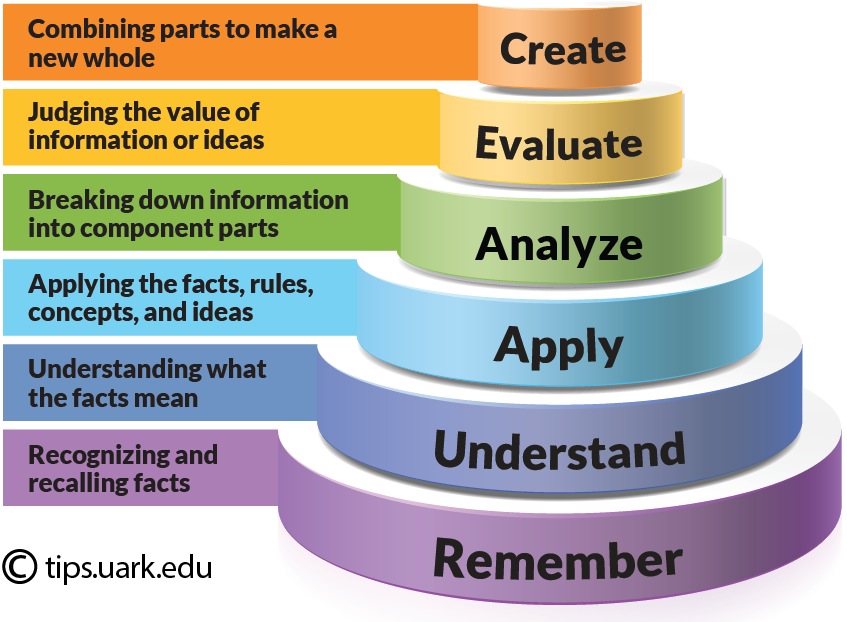Bloom`s
Taxonomy is a list of verbs that help teachers to write their objectives at the moment to do lesson
plans. It is often quite difficult to relate inputs to outcomes in the world of education.
Traditionally, much work has been done to develop and provide inputs into the
process of education. Those verbs are well-organized
into six categories which are; knowledge or remember, understand, apply, analyze, evaluate, create.
Each category has its list of verbs which align with each level. According to
Spratt, M. Pulverness, A. Williams, M. (2012). Language and background
to language learning and teaching. The
TKT Course. (2nd ed.) Cambridge University Press
Gower, R. Phillips, D. Walters, S. (2010). Teaching Practice. A handbook for teachers in training.
Scott, D. (May 13th, 2014). Using
Bloom’s Taxonomy to Write Learning Outcomes. Pearson.
Retrieved by: http://www.pearsoned.com/education-blog/using-blooms-taxonomy-to-write-learning-outcomes/
video: https://www.youtube.com/watch?v=KGXANN3MUsg
video: https://www.youtube.com/watch?v=KGXANN3MUsg

No hay comentarios:
Publicar un comentario